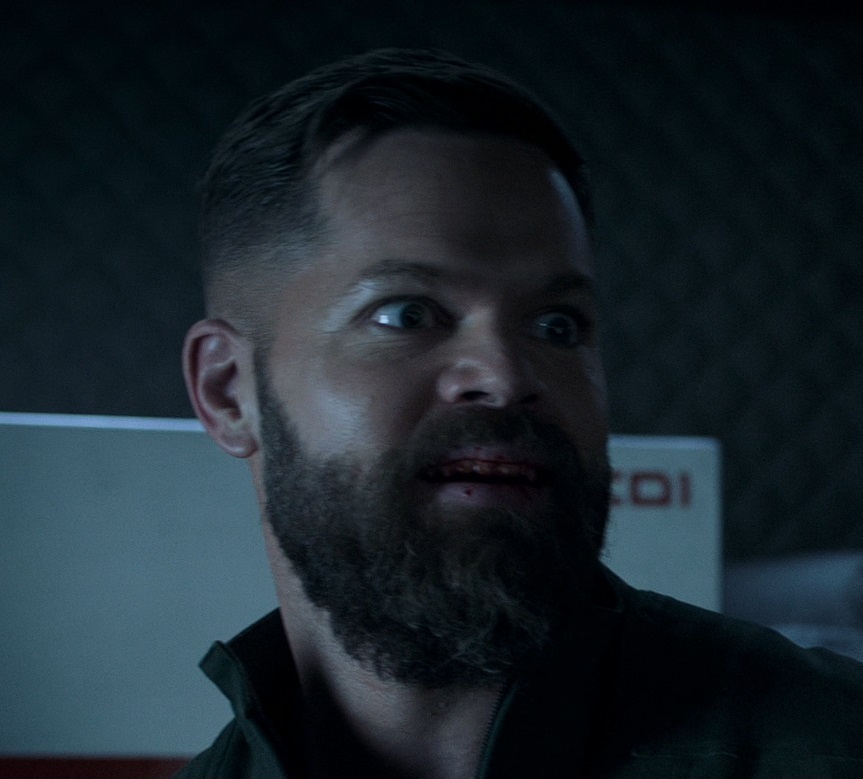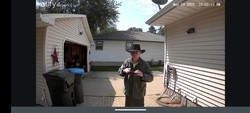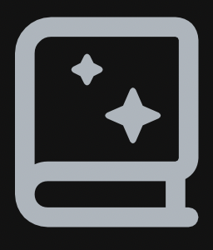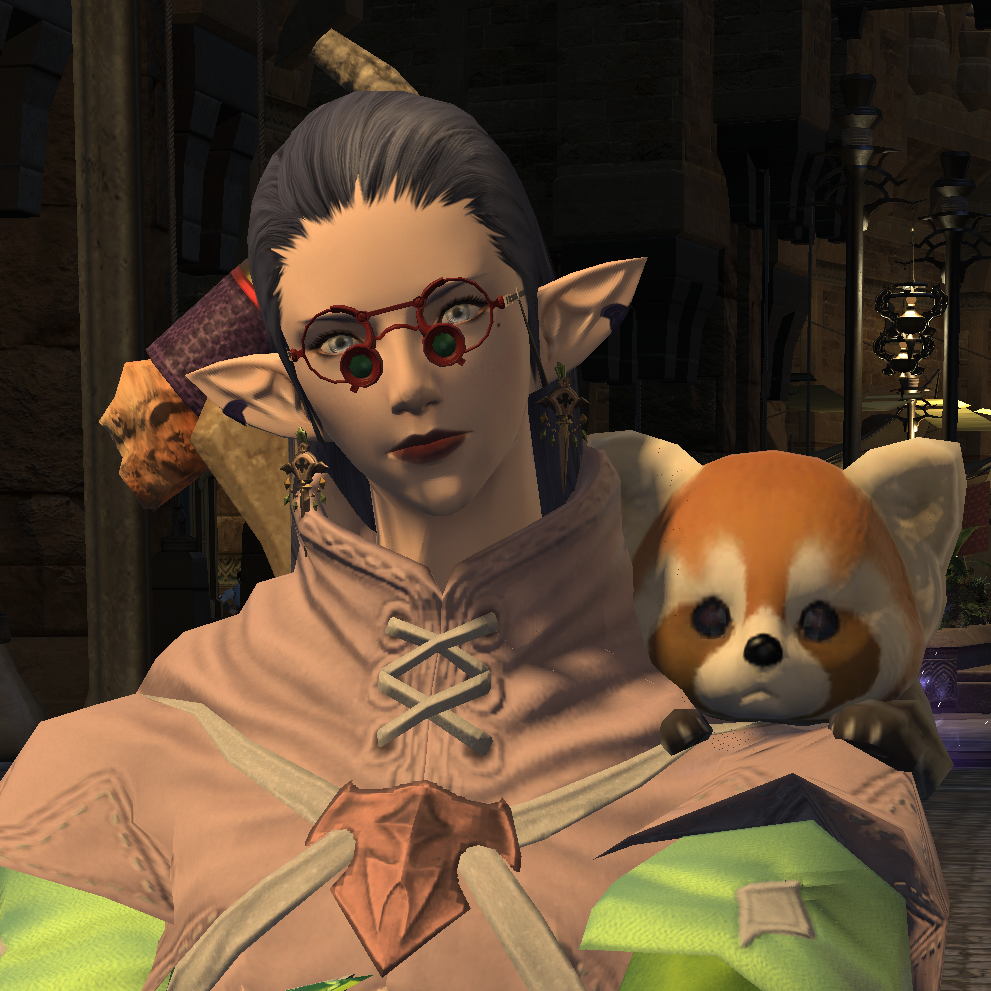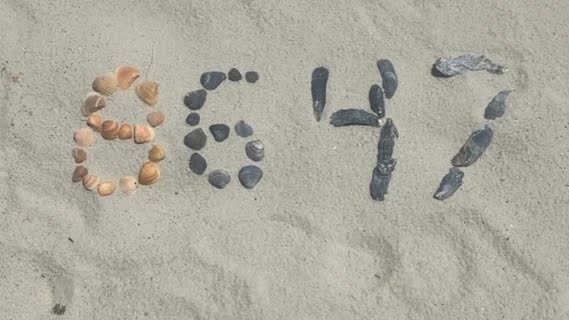That’s hilarious. My Staffy was raised around cats, and still doesn’t believe he can’t climb trees, but loves making “cat” noises at birds from the window with his sisters — who tolerate his attempts with unanimous eyebrows and silent “ugh” faces. 🤣
I need a picture of them staring at birds together!
I would love that too, but the little witches hate having their pics taken, and the lovable doofus trails after them when they nope out. The closest I’ve gotten to a group pic was the two little whorecruxes sleeping on him when he was only twice their size. So loving, so passively oppressive, so 100% cat. 🤷🏼♂️🤣
I had a pittie that tried to climb trees too, but that’s because he saw the squirrels doing it. And because he wanted to eat the squirrels.
I have a dog that was raised with cats and he copies some of the things they do. He licks his paws and cleans his fur the same way a cat does and sometimes when he lays down, he’ll enter dog loaf mode and tuck his little paws underneath him.
Ewok

Edit: Cat tax since this is a cat comm - Chanelle

You have to show the dog loaf now… Ive never seen one
I don’t have any pictures of him doing that unfortunately. I take maybe 5 pictures a year at most, really need to start using it more.
On behalf of everybody, we would love it if you could snap and post a pic of dog loaf, pretty please 🥺
Removed by mod
wtf
deleted by creator
deleted by creator
deleted by creator
Woof mothafucka



/jk, I’m sure your dog is a good
boygirlShe’s a good girl.
Dude looks like he’s going to yell at his son while making an ugly motorcycle
does it meow or woof
“Meowf!”
Guard cat.
fierce
Poor little guy lacks the gracefulness of his species when inert. Bet he can still jump and hunt like a badass, though.
It’s not the first time I see a “cat” behave like this
100% looks like an AI generated picture…
I’d recommend you get some practice identifying and proving AI generated images. I agree this has a bit of that “look”, but in this case I’m quite certain it’s just repeated image compression/a cheap camera. Here’s the major details I looked at after seeing your comment:
- The grass at the bottom left. AI is frequently sloppy with little details and straight lines, usually the ones in the background. In this case, you can look at any blade of grass and follow it, and its path makes sense. The same happens with the lines in the tiles, the water stains, etc.
- The birthmark on the large brown dog. In this case, this is a set of three photos, which gives us an easy way to spot AI. AI generated images start from random noise, so you’d never get the exact same birthmark, consistent across different angles, from a prompt like “large brown dog with white birthmark on chest”. Spotting a change in the birthmark, or a detail like it, would be a dead giveaway, but I can’t spot any.
- There are other tricks as well, such as looking for strange variations in contrast and exposure from the underlying noise, but those are more difficult to explain in text. Corridor Digital has some good videos demonstrating it with visual examples if you’re interested, but suffice to say I don’t pick up on that here either.
It’s useful to be able to prove or disprove your suspicions, as well as to be able to back them up with something as simple as “this is AI generated, just look at the grass”. Hope this helps!
Also, I’m pretty sure I saw this pic being meme long before AI images were a thing.
True, someone else did some reverse image searching before I got here, but I think it’s an important skill to develop without relying on dating the image, as that will only work for so long, and there will likely be more important things than memes that will need to be proven/disproven in the future. A reverse image search probably won’t help us with the next political scandal, for example. It’s a pretty good backup to have when it applies though, nice that it proves me correct here.
I was just pointing to the simplest answer I had, which didn’t rely on a bunch of circumstantial and vague hunches. Since you take issue with that, I guess I’ll rant a bit.
Fake photos have been a thing as long a photos have been. Very little has changed in that regard. The various tips and tricks to spot AI fakes will become obsolete a lot faster than the other critical thinking skills needed to decipher fact from fiction in any other medium: news articles, YouTube videos, social media, etc. This will be especially true as the tools used to make these images will evolve. One of those critical thinking skills is tracing a claim, especially a repeated claim, back to it’s source. Another is looking at the timeline of the spread of the meme. These both involve gathering actual evidence and work for a variety of mediums. This is why so many lamented the death of rigorous independent journalism. Suddenly the news becomes so much more trouble to trust and to verify. AI is here just a fungus feeding off the corpse of journalism in the dense jungle of the death of critical thinking in the news consuming public.
Mhm, of course, critical thinking in general is absolutely important, although I take some issue with describing looking for artifacts as “vague hunches”. Fake photos have existed for ages, and we’ve found consistent ways to spot and identify them, such as checking shadows, the directionality of light in a scene, the fringes of detailed objects, black levels and highlights, and even advanced techniques like bokeh and motion blur. You don’t see many people casting doubt on the validity of old pictures with Trump and Epstein together, for example, despite the long existence of photoshop and advanced VFX. Hell, even this image could have been photoshopped, and you’re relying on your eyes to catch the evidence of that if that were the case.
The techniques I’ve outlined here aren’t likely to become irrelevant in the next 5+ years, given they’re based on how the underlying technology works, similar to how LLMs aren’t likely to 100% stop hallucinating any time soon. More than that, I actually think there’s a lot less incentive to work these minor kinks out than something like LLM hallucination, because these images already fool 99% of people, and who knows how much additional processing power it would take to run this at a resolution where you could get something like flawless tufts of grass, in a field that’s already struggling to make a profit given the high costs of generating this output. And if/when these techniques become invalid, I’ll put in the effort to learn new ones, as it’s worthwhile to be able to quickly and easily identify fakes.
As much as I wholeheartedly agree that we need to think critically and evaluate things based on facts, we live in a world where the U.S. President was posting AI videos of Obama just a couple weeks ago. He may be an idiot who is being obviously manipulative, but it’s naive to think we won’t eventually get bad actors like him who try to manipulate narratives like that with current events, where we can’t rely on simply fact-checking history, or that someone might weave a lie that doesn’t have obvious logical gaps, and we need some kind of technique to verify images to settle the inevitable future “he said, she said” debates. The only real alternative is to just never trust a new photo again, because we can’t 100% prove anything new hasn’t been doctored.
We’ve survived in a world with fake imagery for decades now, I don’t think we need to roll over and accept AI as unbeatable just because it fakes things differently, or because it might hypothetically improve at hiding itself in the future.
Anyway, rant over, you’re right, critical thinking is paramount, but being able to clearly spot fakes is a super useful skill to add to that kit, even if it can’t 100% confirm an image as real. I believe these are useful tools to have, which is why I took the time to point them out despite the image already having been proven as not AI by others dating it before I got here.
You sound a little like chatGPT
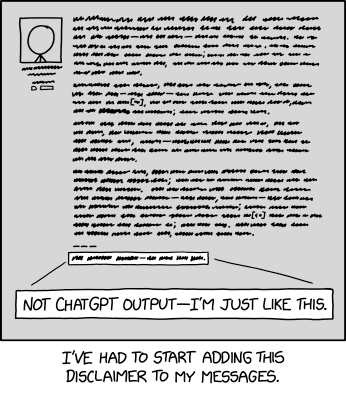
Thanks for clarification
Haha, that’s just because I used a bullet point list. No em dashes though, at the very least.
chatgpt sounds like them
This phrase needs to be made way more popular than it is currently:-)
To be fair, there’s people who sound like ChatGPT, and ChatGPT in turn’s trying to mimic humans.
Marry me
deleted by creator
Your comment looks AI-generated. How am I doing?
Also, I’m too lazy to read other responses saying pretty much that.
Hrm, you admiy to laziness, therefore you must be human.
I too, as a fellow human model, am likewise human as well. Which I will prove as follows: 👨
I was able to find a post of this image daring back to 2023.
Doesn’t mean it’s not AI, just means it’s a lot less likely.
Found a 2021 reddit post as well
But I feel like I saw this first on imgur back in the mid 2010’s. Might be getting things mixed up though
Unlikely, just weird colour balance.
Nah, not shiny enough and the grass is too detailed for AI.
Removed by mod




